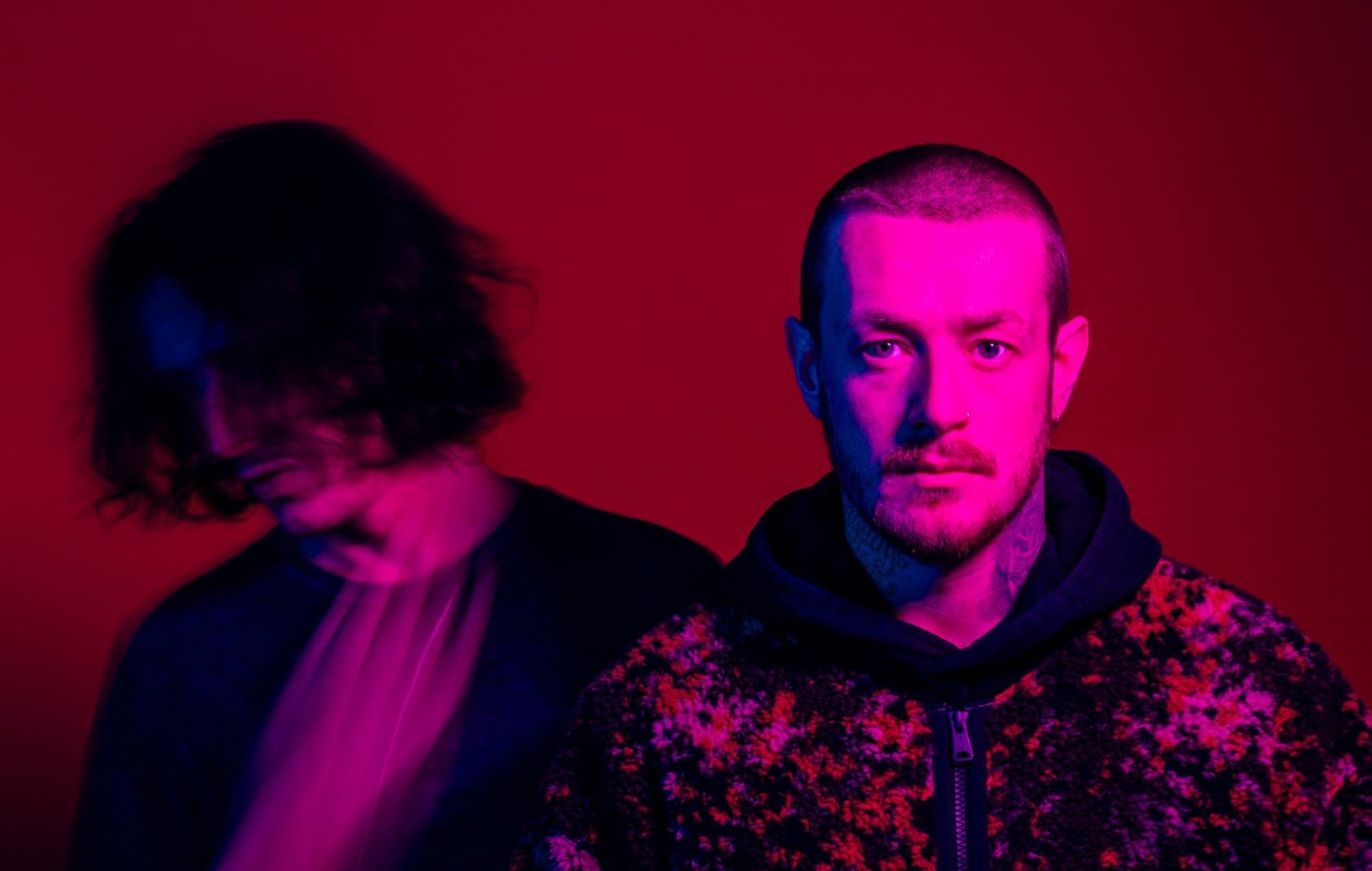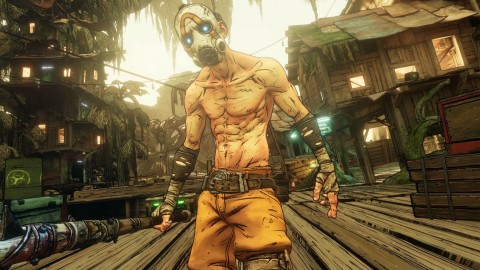NME Music News, Reviews, Videos, Galleries, Tickets and Blogs | NME.COM

A Thursday night in the divided city of Berlin in 1977: Iggy Pop and David Bowie are sat together on the floor of their Schöneberg apartment, having come to the conclusion that chairs are unnatural. They are watching their television set, waiting for the Armed Forces Network telecast, which will deliver them their beloved Starsky & Hutch. Before the show begins the network blasts out a series of beeps in an urgent rhythm that sounds almost like a Motown beat. Inspired, Bowie writes a chord progression on a ukulele and turns to Iggy. “Call it ‘Lust for Life’,” he says. “Write something up.”
Iggy, sensibly, did as he was told. The two albums he released that year under Bowie’s guidance, ‘The Idiot’ and ‘Lust for Life’, were the lizard-skinned punk icon’s first venture into solo territory since his band The Stooges had imploded in a hail of beer bottles, eggs and jelly beans at the Michigan Palace in Detroit three years earlier.
“He was looking for a different outlet,” says Mez Sanders-Green, frontman of Hull punks LIFE. “I think those two albums were his way of growing while battling his demons. His lyrics are so potent and haunting, and he was expanding what he could offer, which you hear on both ‘The Idiot’, with its krautrock influences, and ‘Lust For Life’, which is a bit more rock’n’roll.”
LIFE aren’t alone in their love for ‘The Idiot’ and ‘Lust for Life’. 43 years on, those two records have become inspirational touchstones for a whole generation of young British bands. This week both albums will be reissued in remastered form, along with a seven-disc box set called ‘The Bowie Years’. On the ‘Edits + Outtakes’ disc, you’ll find a cool old recording of Iggy recalling all the things he learned about from his mentor, including expressionism, impressionism and “what happened in Zurich with Tristan Tzara and the Dadaists.” He adds, modestly: “I didn’t know anything about any of this stuff. He knew how to choose a wine – and what the hell is an entrecôte?”
That’s not to say the influence only flowed one way. There was plenty that Iggy could teach Bowie, and plenty of things Iggy could do musically that Bowie couldn’t get away with. When the pair came up with ‘Nightclubbing’, a song about their wild nights out across Europe, they used a cheap synthesizer and a Roland drum machine. Bowie wanted to replace the Roland with a real drummer because he didn’t think he could put out a record that sounded like that. Iggy, on the other hand, realised he was bound by no such rules. “That story is really interesting because it shows Iggy had nothing to lose,” says Cam Sims of south London pub rockers Hotel Lux. “I think he saw it as a fresh start.”
That one drum loop from ‘Nightclubbing’ has gone on to be referenced by everyone from Nine Inch Nails (on ‘Closer’) to Oasis (on ‘Force of Nature’), and its impact is still being felt today.

“If we had a penny for every time we’ve tried to rip off ‘Nightclubbing’, we’d be able to hire Iggy for our birthday party,” admits Callum Parker, guitarist with Coventry rabble FEET, who adds that he admires the way the records transport you to a specific time and place “Everyone’s recording on laptops nowadays, so it’s harder to get your own sound. When you listen to those Iggy and Bowie in Berlin albums. it’s very apparent where they were and what kind of place and situation they were in at the time.”
The tension of that particular place and situation, a city still divided by the Berlin Wall, is something Bowie specifically sought out. In the years before their move, Bowie and Iggy had both lived in Los Angeles, where they’d been off the rails even by the standards of ‘70s rock stars. Iggy got to the point where he checked himself into a mental asylum to get clean, until Bowie turned up with some coke, which seems counterproductive. “This was very much a ‘leave-your-drugs-at-the-door’ hospital,” Bowie remembered later.
It’s safe to say a change of scenery was called for. In 1976, Bowie invited Iggy along for the ride on his mammoth ‘Station to Station’ tour, during which they were arrested for marijuana possession in Rochester, New York. “I was very nervous, all the way until we got to court,” Iggy told me when I interviewed him in 2016, remembering his friend fondly. “David was always looking out for me. He bought me a suit! I paid back everything I ever owed him later on, but at the time I just didn’t have enough dough.”
When Bowie suggested relocating to west Berlin, Iggy was game. They started working on new music even before they got there. Much of ‘The Idiot’ was written at the Château d’Hérouville near Paris, where Bowie had recorded 1973’s ‘Pin Ups’, but Iggy once told the BBC that the music was “inspired in many ways by [and] tinged by Berlin; the idea of Berlin”.
Read more: The Big Read – Iggy Pop: “Punk has to have a sense of hopelessness about it”
After initial demos were made at the Château, recording for ‘The Idiot’ continued in Munich before Iggy and Bowie finally arrived in their longed-for Berlin. The album was given a final mix by Bowie producer Tony Visconti at the city’s Hansa Studio, and was released on March 18 1977. For Hotel Lux’s Sims, ‘The Idiot’ is a record that’s at its best at its weirdest. “I really admire the stuff that just kind of sinks into insanity,” he says. “‘The Idiot’ has the best opener and the best closer to any album. ‘Sister Midnight’ is amazing, and with ‘Mass Production’ you’re sat there thinking: ‘I’ve listened to eight minutes of this and I could probably listen to eight minutes more.’”
“Iggy’s performance is so compelling because it’s always teetering on collapse” – Sports Team’s Alex Rice
On 1 March 1977, the coolest place anywhere on the planet was the Friars club in Aylsbury. It was there that Iggy made his long-awaited live return, backed by a band that included Bowie on piano and backing vocals, Ricky Gardiner on guitar and brothers Tony and Hunt Sales on bass and drums respectively. (Good bit of trivia: The Sales brothers were the sons of Soupy Sales, a TV comedian who once pied Frank Sinatra.)
Iggy’s performances on that tour are now the stuff of legend, as Sports Team frontman Alex Rice eloquently explains. “I’ve watched this video of ‘Lust for Life’ live in Manchester 1977 hundreds of times,” he says. “He has a stage hand carry him slumped to the mic, hold him there for a minute or so, then he opens up after 12 bars of intro and gives it everything. The way he plays with the audience’s expectation of what one of his shows is supposed to be is incredible. It’s hard-edged but in so many ways just beneath the surface it’s silly, almost vaudeville. I think that’s why he’s so compelling to watch, because it’s always teetering on collapse, never quite in character, androgynous. It’s the greatest show I’ve ever seen.”
In turn, Rice wonders what Iggy made of his band’s performance: “We saw him at our New York show last year, attending under a pseudonym, presumably underwhelmed.”
Iggy didn’t waste any time when he arrived back in Berlin in April 1977. He took the touring band straight into Hansa and they wrote, recorded and mixed ‘Lust For Life’ in just eight days. Iggy barely slept, but he had a reason for all those all-nighters. “See, Bowie’s a hell of a fast guy,” he once told an interviewer. “I realised I had to be quicker than him – otherwise whose album was it gonna be?”

‘Lust For Life’ would be released just five months after ‘The Idiot’, on 29 August 1977, with Iggy making full use of the title Bowie had so generously gifted him. “From the name of the record alone you can feel the energy in the music,” says James McGovern, singer with Dublin post-punks The Murder Capital. “‘Lust For Life’ is just one of those great titles. There are few things in the world where you’re like, ‘Fuck, I really wish that was mine,’ and ‘Lust For Life’ is definitely one of them.”
McGovern picks out ‘Tonight’ among his favourites from the record. “It’s is such a sad love story,” he says. “I love those tracks that reel you in with major chords. Bowie was always teetering on the edge of pop.”
Given that most of the album was written by musical super-geniuses Iggy and Bowie, it’s worth noting that one of its best known tunes wasn’t. ‘The Passenger’ was composed by guitarist Ricky Gardiner, a driving rhythm to accompany Iggy’s lyrics, which he’s said were “partly written about the fact I’d been riding around North America and Europe in David’s car ad infinitum; I didn’t have a driver’s license or a vehicle.”

Charlie Steen, frontman with London post-punks Shame, singles that track out as his favourite of Iggy’s solo career. “It was the first one that I really fell in love with as a kid,” he says. “One of my favourite journalists, [former NME writer] Nick Kent, was close with Iggy Pop. He said that Bowie’s main attraction to Iggy was the way that he could turn lyrics a verbal form of jazz.”
Right from those exuberant opening drums, ‘Lust for Life’ is an album that pulses with the excitement and spontaneity of a live band having the time of their lives playing together. ‘Success’ sees Iggy trailed by the enthusiastic backing singing of the Sales brothers, who are doing their absolute best to repeat every line he utters. Iggy stretches this conceit to absurd comic lengths before collapsing. “Oh, shit!” he breathes. “(Oh, shit!)” answer the Sales brothers.
“That was the first take, and it was the only take they did!” says an impressed Callum Parker, who adds that FEET have been inspired to achieve a similar level of spontaneity in the studio. “I think that’s so important to preserve in music. It all sounds so natural, like he’s just going to jump in the booth: ‘Do this take and that’ll be it’. It’s very authentic.”
“Iggy could turn lyrics a verbal form of jazz” – Shame’s Charlie Steen
Oliver Southgate of Bristol punks Heavy Lungs says that ‘Lust for Life’ is “everything I want from an album and more. It’s always a joy to listen to, and that’s what catches people out – the joy of it.” He highlights the righteous strut of ‘Neighbourhood Threat’ as “the perfect marriage of Iggy’s newfound sophistication at the time, and the snarling-cheetah of his Stooges past”.
Iggy always had the raw power but in 1977 Bowie pointed it somewhere new; somewhere punk hadn’t been before. Four decades later, both ‘The Idiot’ and ‘Lust for Life’ are still sending out sparks. “They were mixing those worlds of the fabulousness of Bowie with the grimy edge that Iggy had,” says The Murder Capital’s McGovern. “It was one of the coolest things to happen in history.”
– ‘The Bowie Years’, a seven-CD boxset exploring Iggy Pop’s Berlin-era albums, is available from May 29 via UMC
The post “The perfect marriage”: how Iggy Pop and David Bowie’s Berlin era shaped the new wave of post-punk appeared first on NME Music News, Reviews, Videos, Galleries, Tickets and Blogs | NME.COM.





